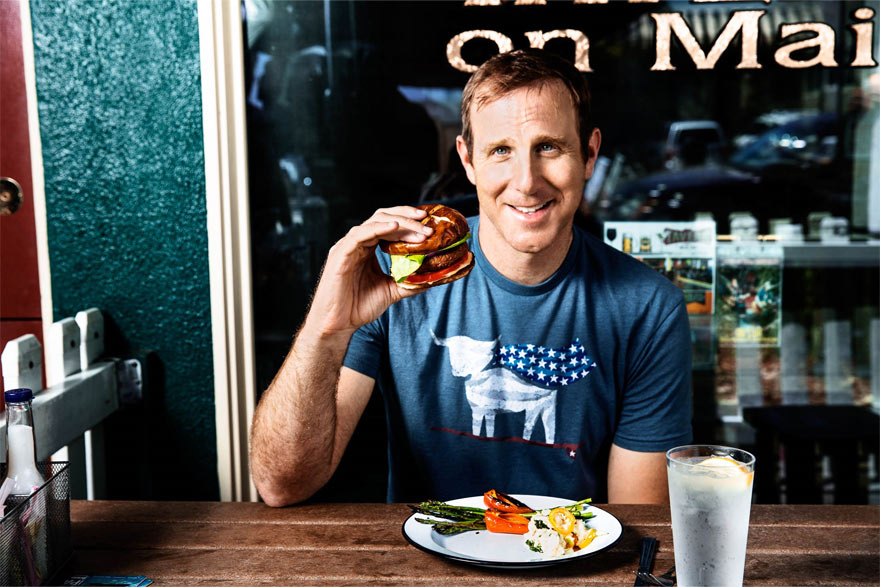Americans are turning in droves to foods sourced from plants, for many reasons—taste, health, concerns about climate change and animal welfare. The United Nations named 2016 the “Year of the Pulses” due to the high nutrition and benefits to soil provided by legumes and beans. Eating cows, pigs, and chickens has a damaging impact on soil, air, and water quality, uses tremendous quantities of limited natural resources, and presents public health dangers (including antibiotic resistance). Eric Schmidt of Google parent company Alphabet foresees an approaching “revolution of replacing livestock with plant proteins.” Even Tyson meat company has invested in Beyond Meat, maker of plant-based burgers.
The hype is borne out by the numbers. Two-thirds of Americans have tried protein alternatives like tofu or veggie burgers, and 70 percent of meat eaters report using a meat substitute at least once a week. Fifty percent have tried dairy-free milk, cheese, and yogurt—refrigerated non-dairy beverages (soy/almond/cashew/coconut/hemp/rice) accounted for 67 percent of sales of the $4.9 billion last year in the plant-based foods industry. Overall, the industry contributes $13.7 billion a year to the U.S. economy.
Beyond Meat founder Ethan Brown hopes to effect a paradigm shift in food perception—with consumers enjoying his Beyond Burger, Beast Burger and Beyond Chicken products not as the “vegan, doesn’t-taste-as-good option” but simply as another type of protein-rich food without soy or GMOs—and without needing the animal. Its nutritional profile is very similar to an animal-based burger, without the cholesterol and animal fat. “Switching to plant protein is the most important thing we can do to impact climate change,” Brown said. Beyond Meat’s investors include Bill Gates and Twitter founders Biz Stone and Ev Williams, whose Obvious Ventures donated $17 million. Former McDonald’s CEO Don Thompson is on the board, and scientific advisors hail from Stanford, UCLA, and NYU. Beyond Meat burgers earned the distinction of being the first non-meat product sold in the Whole Foods meat case, alongside traditional beef—affirming Fast Company’s comment that, “The meat case is no longer the meat case, it’s the ‘protein’ case.”
Michele Simon of the Plant Based Foods Association—comprising 52 leading companies—says the industry’s potential is huge, although it is currently being attacked by the dairy industry. Lawmakers have introduced the Dairy Pride Act that would disallow plant-based products from using the label “milk” and other dairy terms on their products.
Some see the industry as “more high-tech than hippie,” informed as much by technology as by nutrition. Many venture capitalists are supporting the mission, with hope of stimulating a global shift to consumption of plant-based products on a regular basis. With the earth’s population expected to reach 9 billion by 2050, that seems like a smart piece of forward thinking.





